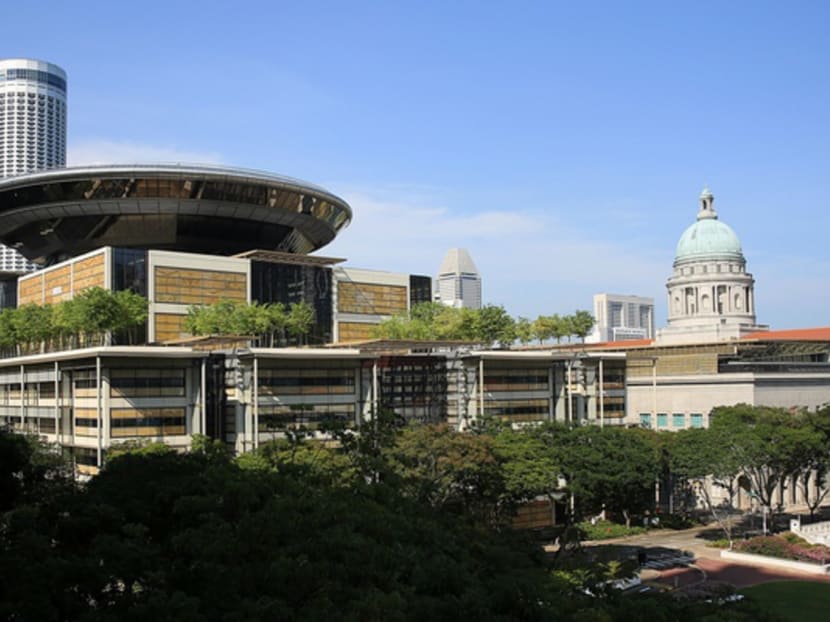Government agencies should be included under anti-harassment law: Experts
SINGAPORE — With dozens of online platforms passing off falsehoods as “citizen journalism”, individuals are increasingly empowered by social media to harass organisations, and the possibility of amending the Protection from Harassment Act (Poha) to include entities such as the Government is a welcome one, said legal experts.
SINGAPORE — With dozens of online platforms passing off falsehoods as “citizen journalism”, individuals are increasingly empowered by social media to harass organisations, and the possibility of amending the Protection from Harassment Act (Poha) to include entities such as the Government is a welcome one, said legal experts.
Singapore Management University law don Eugene Tan — who had participated in the debates on the anti-harassment Bill as a Nominated Member of Parliament in 2014 — said Poha, if applied to non-natural persons, will “fill a lacuna in the law”.
“Otherwise, a public body might have to spend (an) inordinate (amount of) time and other limited resources to defend itself ... In today’s world of pervasive social media, the ability of an individual to harass an organisation is real and the real threat posed by false information cannot be underestimated,” said Associate Professor Tan.
Last week, the Court of Appeal ruled in a 2-1 split decision that government agencies do not fall under the legal definition of “persons” in Section 15 of the Poha, which allows the court to order the publisher of a false statement to bring the falsehood to readers’ attention.
The case concerned the comments made by a medical device firm’s co-founder, which were published on socio-political website The Online Citizen, over an alleged patent infringement involving the Ministry of Defence (Mindef).
Following the judgment, the Ministry of Law (MinLaw) clarified that the Government’s intent in enacting the statute is to allow both human beings as well as the Government and corporations to rely on Section 15 of Poha. It also said the Government would consider what further steps it should take to correct the deliberate spreading of falsehoods.
Commenting on the possibility of Poha being amended, Assoc Prof Tan said it is not a question of whether entities require protection from harassment and falsehoods, but about protecting public bodies from having to devote resources in what may amount to a “war of attrition”, and ensure as little misinformation as possible.
“There is little social value in protecting speech designed to harass or perpetuate falsehoods,” he added.
Agreeing, criminal lawyer Sunil Sudheesan said, “Online harassment, such as through the publication of false statements, has become a bigger issue these days. I think everyone, (including) persons, companies, associations, governments, is entitled to equal protection from falsehoods.”
Mr Sudheesan, president of the Association of Criminal Lawyers of Singapore, noted that Poha is “not just about physical or online harassment”.
“Perhaps many ignore falsehoods posted online to avoid the escalation of matters. But some take a very determined and principled approach to correct them, and no one can fault them for doing that,” he said.
Criminal lawyer Josephus Tan said it is the prerogative of the Government to clarify the scope of Section 15 in the statute. However, he also questioned why public bodies, like Mindef in this case, could not have attempted other avenues, such as suing for defamation.
Citing the case of political blogger Roy Ngerng, who was fined in 2015 for defaming Prime Minister Lee Hsien Loong in a blog post, Mr Tan said, “That was a very similar case linked to the cyber world. Why is there an insistence on Poha (in the Mindef case)?”
While companies and public figures have always been able to sue for defamation here, Mr Ronald Wong from Covenant Chambers said whether this is an option for government bodies is another murky area.
He noted that it is not clear if the Derbyshire principle — a common law principle in Britain and other countries that bars a public body from suing a citizen for defamation so as not to discourage free speech — is applicable here. “That is one reason the Attorney-General’s Chambers (acting on Mindef’s behalf) took the route of Poha in this case,” Mr Tan added.
The Workers’ Party has also voiced concerns over the possibility of amending Poha, saying it would “vigorously oppose” any move to amend Section 15 to allow the Government to invoke it.
“If the intent of the Poha was to protect the Government, be it from either false information or harassment, why was this not stated in Parliament in an upfront and unambiguous manner”, when passing the Act in 2014, the WP asked.
It also questioned why the Government needs such “extensive (legal) provisions” to protect itself, given the “vast media resources at its disposal” to convey information to the public.
In response, MinLaw reiterated that “everyone, including the Government, should be entitled to point out falsehoods which are published, and have the true facts brought to public attention”.










